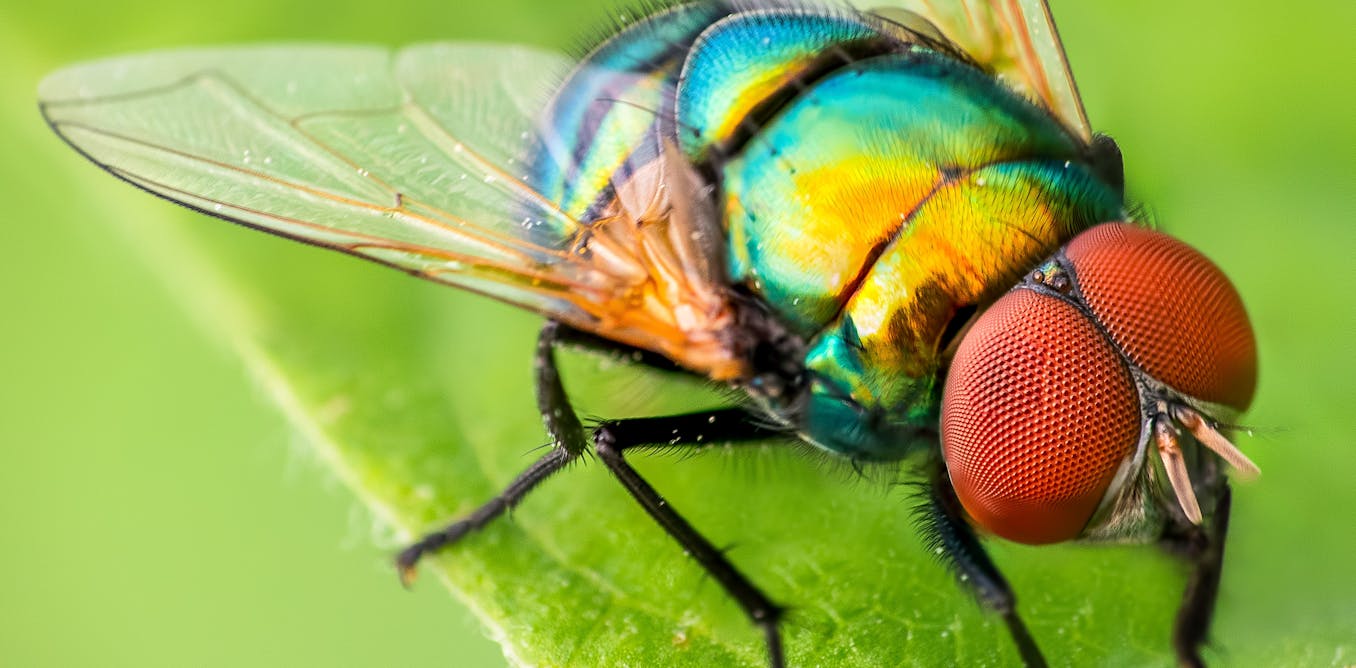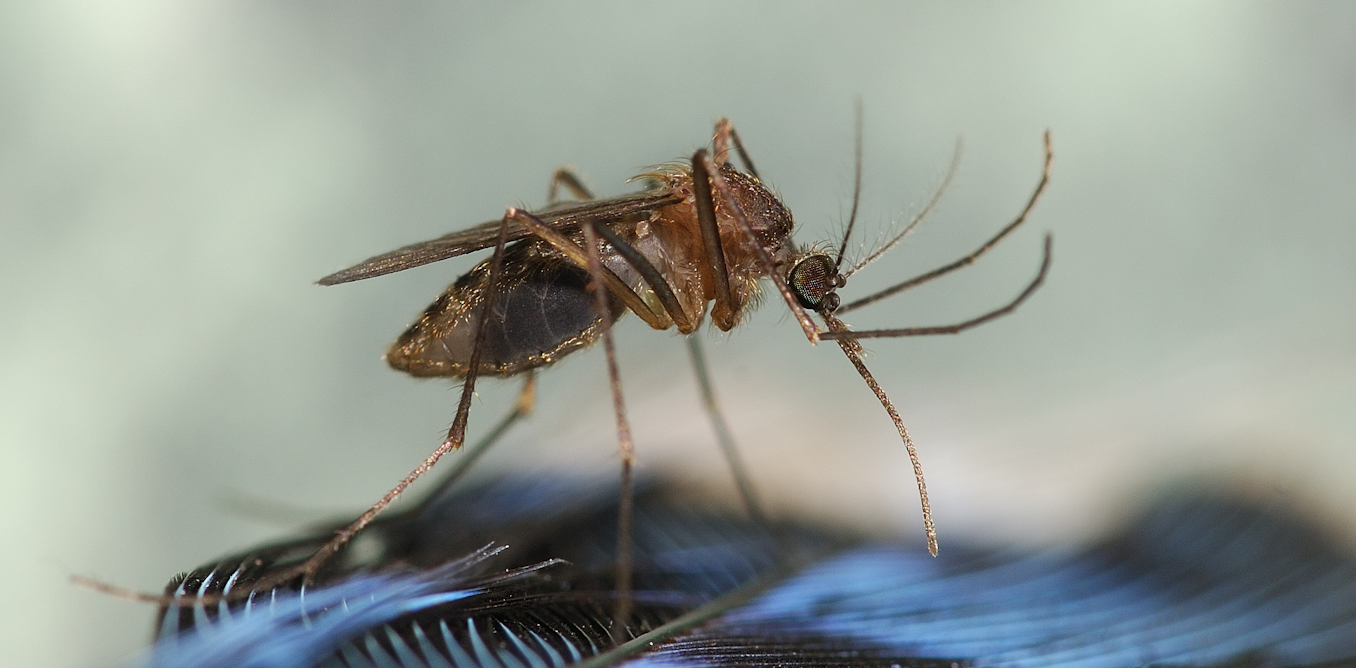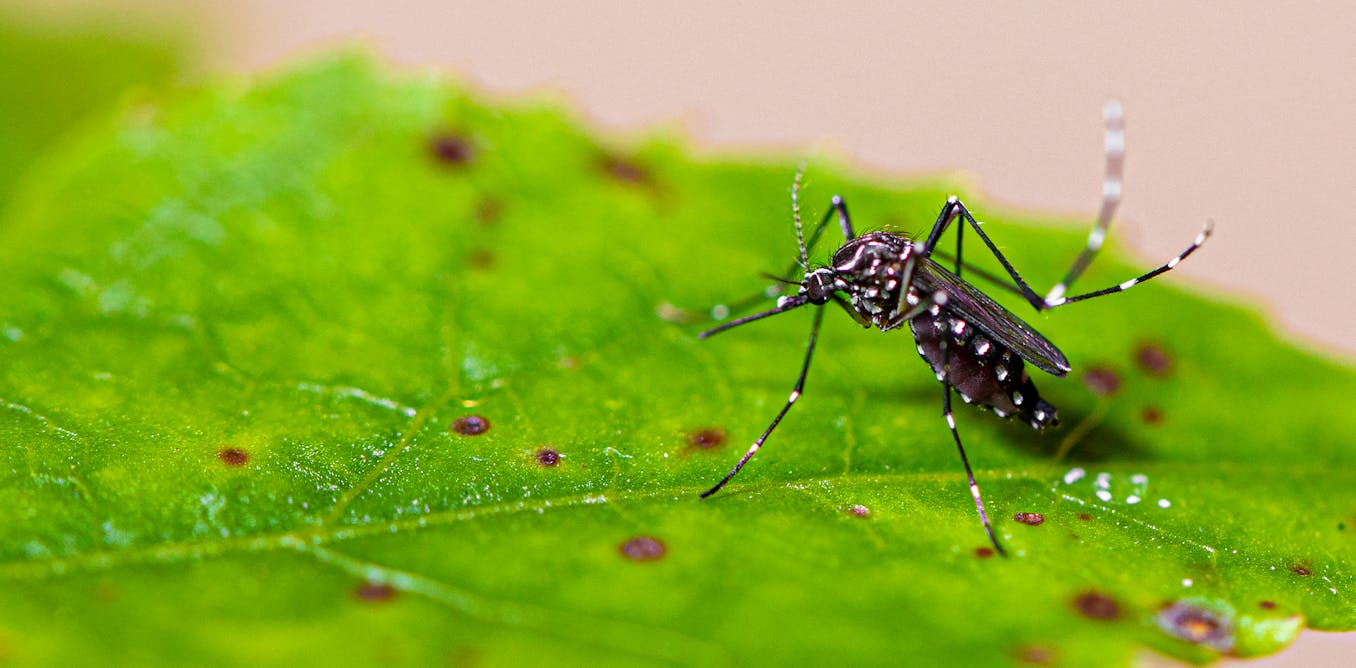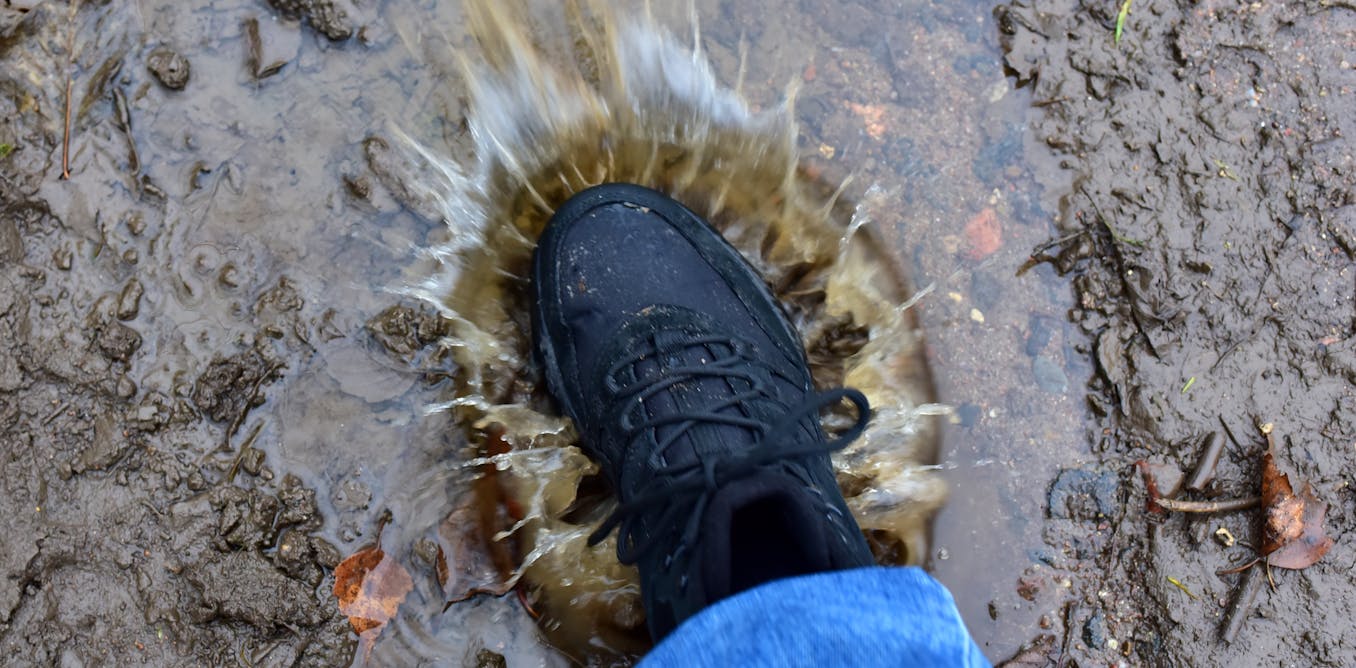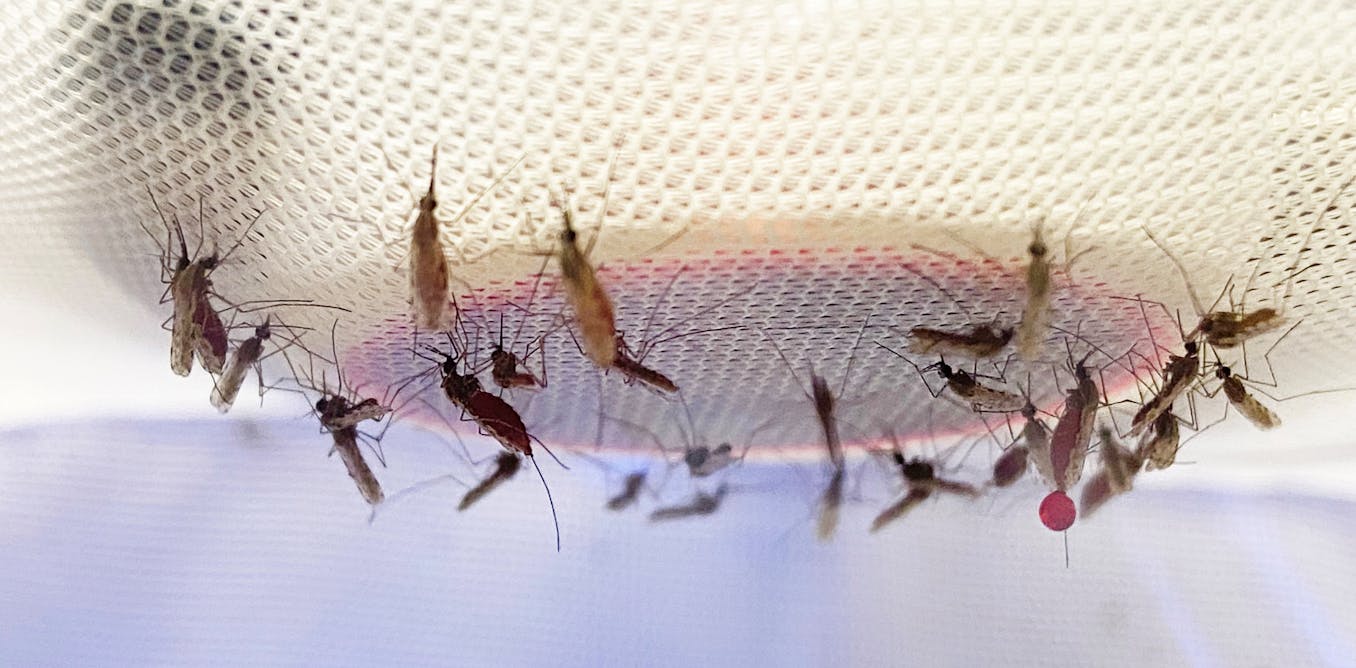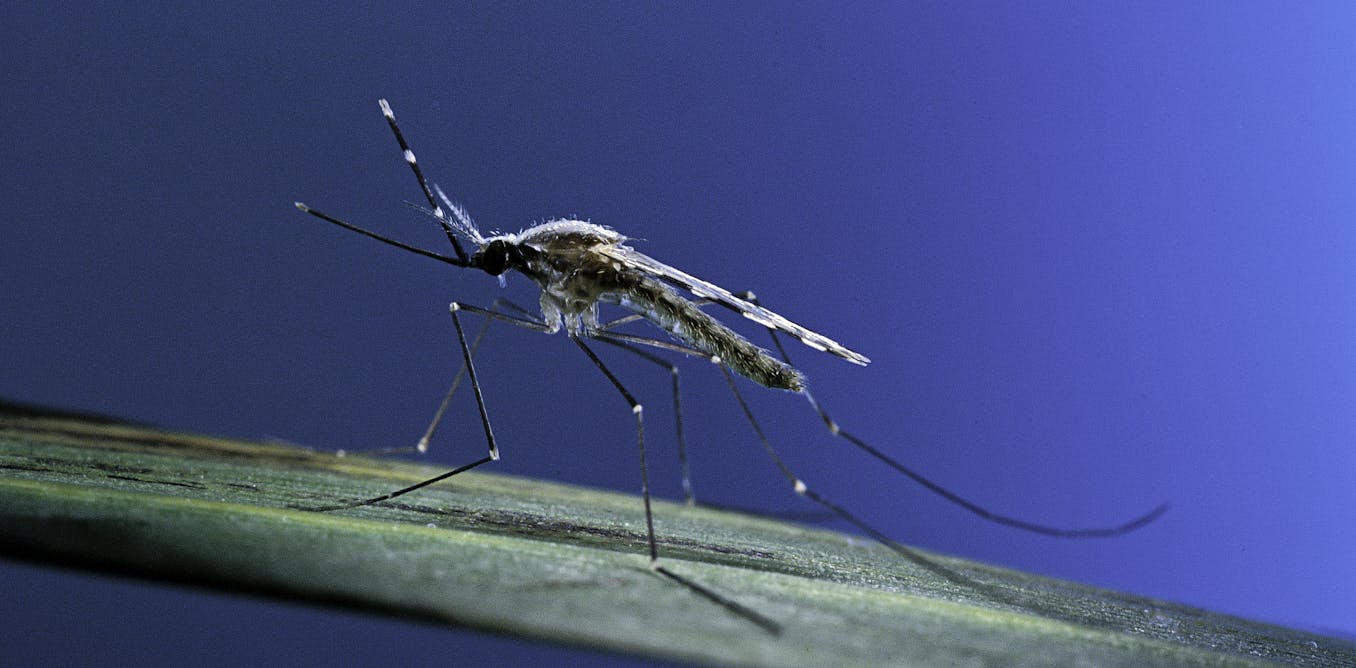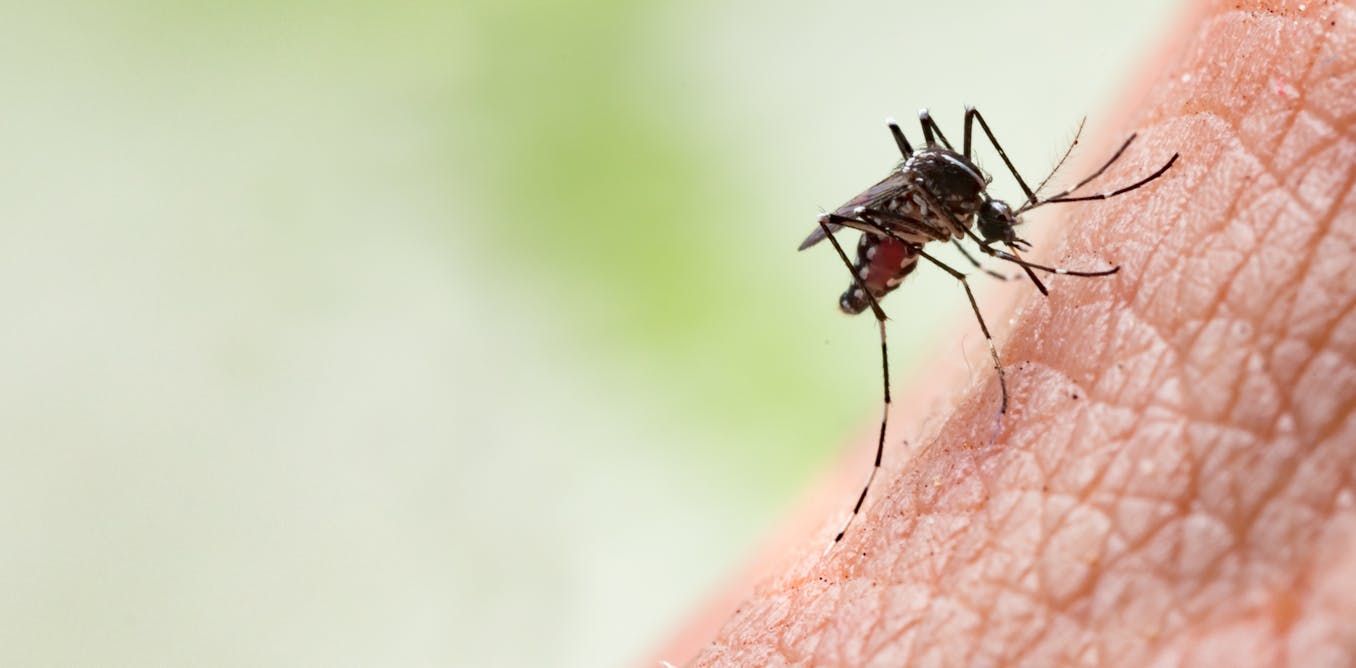Making sex deadly for insects could control pests that carry disease and harm crops
Mosquitoes cause around a million deaths per year. So, scientists are coming up with genetic engineering techniques that could lower their numbers.
Feb. 21, 2025 • ~8 min
Some viruses prefer mosquitoes to humans, but people get sick anyway − a virologist and entomologist explain why
The virus that causes eastern equine encephalitis, or EEE, has evolved to infect mosquitoes. To be able to spread between people, however, it faces extra challenges.
Feb. 4, 2025 • ~9 min
As eastern equine encephalitis spreads, a neurologist explains how to stay safe during this latest outbreak of the ‘triple E’ virus
Among those developing the brain swelling known as encephalitis, approximately one-third will die, with the rest likely to experience neurological problems.
Sept. 6, 2024 • ~8 min
Female mosquitoes rely on one another to choose the best breeding sites − and with the arrival of spring, they’re already on the hunt
Female mosquitoes don’t want to lay their eggs alone, but they don’t want sites that are too crowded either. Understanding what guides their choice could inform new control strategies.
March 19, 2024 • ~8 min
Not all repellents are equal – here's how to avoid mosquito bites this summer
Two mosquito physiology experts explain which repellents work better than others and how to protect yourself this summer.
July 10, 2023 • ~8 min
Locally transmitted malaria in the US could be a harbinger of rising disease risk in a warming climate – 5 questions answered
After recent cases in Florida and Texas, authorities are advising the public to drain standing water sources to keep mosquitoes from multiplying.
June 30, 2023 • ~8 min
Mosquitoes are not repelled by vitamins and other oral supplements you might take
A medical myth persists that the B vitamin thiamine is a systemic insect repellent that wards off mosquitoes when taken orally. But scientists have disproven this mistaken belief again and again.
Dec. 7, 2022 • ~8 min
Why are some people mosquito magnets and others unbothered? A medical entomologist points to metabolism, body odor and mindset
Mosquitoes can track down potential hosts using the CO2 released by humans’ metabolic processes, a medical entomologist explains.
Sept. 9, 2022 • ~7 min
/
3

